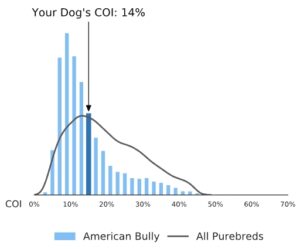Pneumonia is a serious respiratory illness that can affect dogs just as it does humans. It can be caused by a variety of factors, such as bacterial, viral, or fungal infections, and can result in severe symptoms that require immediate veterinary attention. As a dog owner, it is essential to be aware of the signs of pneumonia to seek medical help as soon as possible. In this article, we’ll explore the signs that your dog may have pneumonia and what you can do to help.
Coughing Coughing is one of the most common signs of pneumonia in dogs. A persistent cough that sounds wet or productive is a clear indication that your dog’s respiratory system is struggling. The cough may be accompanied by a hacking sound or the production of white or yellow phlegm.
Labored Breathing Dogs with pneumonia may also experience difficulty breathing, and their breathing may become shallow or rapid. This is because the lungs become inflamed and filled with fluid, making it difficult for them to function correctly. You may notice your dog breathing heavily even when they are resting or sleeping.
Fever A fever is a sign that your dog’s body is fighting an infection. A temperature of over 103°F is considered a fever in dogs and is a clear indication that something is wrong. If your dog has a fever, you may notice that they are lethargic and have a reduced appetite.
Nasal Discharge If your dog has pneumonia, they may develop a runny nose or nasal discharge that is thick and discolored. This discharge may be yellow, green, or brown and can be a sign that your dog’s respiratory system is struggling to fight off the infection.
Loss of Appetite A loss of appetite is a common symptom of many illnesses, including pneumonia. If your dog is not eating or drinking as much as they usually do, it could be a sign that they are unwell. This is especially concerning if your dog is refusing food and water for more than 24 hours.
If you notice any of these signs in your dog, it is essential to take them to the vet as soon as possible. Pneumonia can be a life-threatening condition, especially in young or elderly dogs, and prompt treatment is critical.
Treatment for pneumonia may include antibiotics, oxygen therapy, and supportive care to help your dog breathe more comfortably. Your vet will also monitor your dog’s progress closely to ensure that they are responding well to treatment.
In conclusion, recognizing the signs of pneumonia in your dog is critical to ensuring that they receive prompt medical attention. If you suspect that your dog may have pneumonia, do not hesitate to contact your veterinarian. With timely treatment and proper care, most dogs can recover from pneumonia and resume their normal activities.







